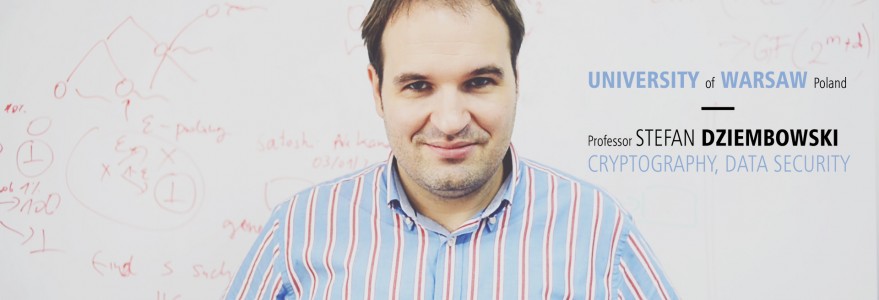Since recently, we can pay for goods and services not only in coins or banknotes, but also with crypto currency, called “bitcoin”. Professor Stefan Dziembowski from the Faculty of Mathematics, Informatics and Mechanics, who studies the properties of bitcoin, features in our latest films about the laureates of the European Research Council grants.
In 2007 professor Dziembowski, at that time working at the Sapienza University in Rome, received the ERC Starting Grant for pioneering research which goes beyond the current frontiers of knowledge. Soon he moved the project, financed from a grant of 0.87 million euro, to the University of Warsaw, simultaneously becoming the first employee of the University of Warsaw to receive this prestigious subsidy. The project “Cryptography on non-trusted machines” ended last year.
This week, we present the last film of the series devoted to seven laureates of ERC grants. More about the series
STEFAN DZIEMBOWSKI
The research of professor Dziembowski focuses on the cryptology, a discipline from the border between mathematics and computer science, which for many brings up associations with the breaking of the Enigma code during the World War II by a group of Polish mathematicians. However, cryptology saw dynamic progress over the last decades, with the advent of digital signature and public-key cryptography.
Currently, cryptography finds more and more uses in the digital economy. A team from the Faculty of Mathematics, Informatics and Mechanics, headed by professor Dziembowski, works on the development of such new applications. The cryptologists from the University of Warsaw managed to show the ways of using some special features of the currency to establish safe bitcoin lotteries without using the trust of a third party. Their publication „Secure Multiparty Computations on Bitcoin” received the award for the best paper during the IEEE Symposium on Security & Privacy in San Jose, California, in May this year.
Professor Dziembowski works in the Institute of Informatics of the University of Warsaw. He cooperated with and conducted research in the Aarhus University in Denmark, Institute of Informatics and Telematics in Pisa and the Zurich Institute of Technology.



